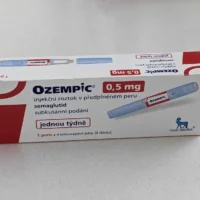Depression, a complex and debilitating mood disorder, significantly alters a person’s thinking, emotions, and behaviors. Pervasive feelings of intense sadness and hopelessness can have a profound impact on everyday life. Those grappling with depression often face challenges like lack of energy, motivation, difficulty concentrating, and decision-making, impeding even the simplest tasks.

Recent statistics reveal that depression affects over 264 million people globally, making it a leading cause of disability. If left untreated, depression can result in severe health complications and even suicide.
Emotional Symptoms of Depression:
- Persistent feelings of sadness or hopelessness
- Loss of interest or pleasure in previously enjoyed activities
- Feelings of worthlessness or guilt
- Irritability or frustration
- Difficulty concentrating, remembering, or making decisions
- Recurrent thoughts of death or suicide
Physical Symptoms Associated with Depression:
- Changes in appetite, leading to weight gain or loss
- Disrupted sleep patterns, including insomnia or oversleeping
- Fatigue or loss of energy
- Slowed movement or speech
- Unexplained physical aches or pains, such as headaches or backaches
- Digestive problems without a clear cause
Depressed individuals often experience changes in appetite and sleep patterns, which can exacerbate their symptoms and hinder daily functioning. Moreover, they may frequently use specific words in conversations and writing that underscore their negative thinking patterns.
Seeking help from a mental health professional is vital for individuals struggling with depression. Treatment options such as medication and therapy can lead to significant improvements in mood, energy levels, and overall quality of life. Furthermore, a strong support network of family and friends can be immensely beneficial in managing depressive symptoms. It’s crucial to remember that depression is treatable, and with the right support, recovery is achievable.
Here are seven words that people with depression commonly use, along with ways to support someone dealing with these issues:
- “Always” – Depressed individuals often feel trapped in negative situations, using words like “always” to describe them as unchangeable. Encourage them to recognize opportunities for change and improvement.
- “Never” – Similar to “always,” those with depression may use “never” when describing negative experiences they believe will persist. Help them understand that change is possible and promote a more positive outlook.
- “Nothing” – People with depression might feel hopeless about their future and use “nothing” to express their emotions. Encourage them to seek professional help and remind them of their strengths and accomplishments.
- “Empty” – Depression can cause feelings of emptiness or emotional disconnection. Support them by empathizing with their feelings and validating their emotions.
- “Tired” – Fatigue is a common symptom of depression. Encourage them to seek medical help, exercise regularly, eat a balanced diet, and practice good sleep hygiene to counteract fatigue.
- “Worthless” – Low self-esteem and feelings of inadequacy are common in depression. Encourage them to seek cognitive-behavioral therapy (CBT) to challenge and replace negative self-beliefs with positive, growth-oriented thoughts.
- “Sad” – Prolonged sadness and hopelessness characterize depression. Encourage them to seek help, medication, or therapy to manage their symptoms and improve their quality of life. Offer emotional support and positivity.
It’s important to note that the use of these words may vary for each individual, and experiencing these feelings doesn’t necessarily mean that a person is depressed. However, frequent use of these words may indicate a need for additional support or therapy.



